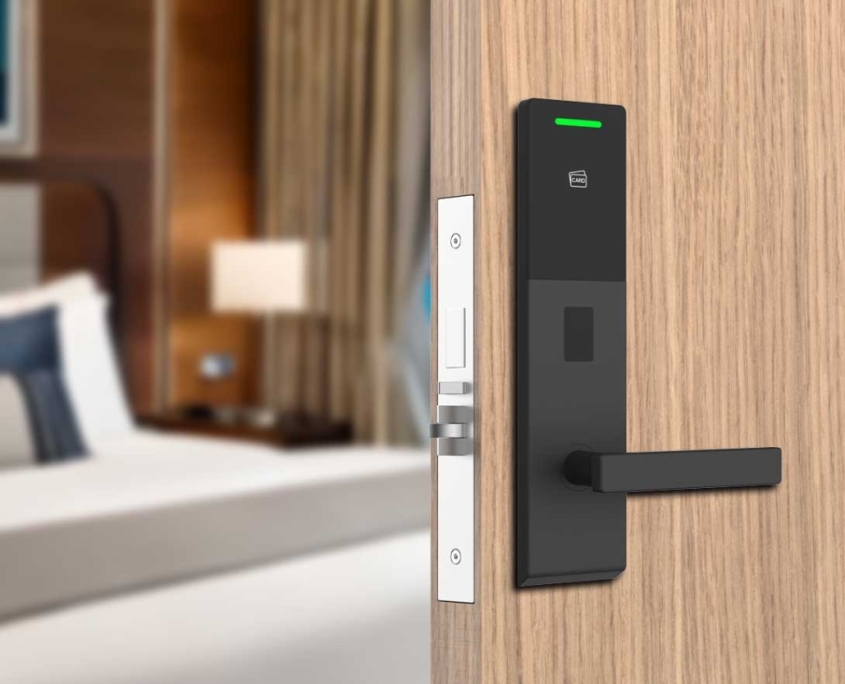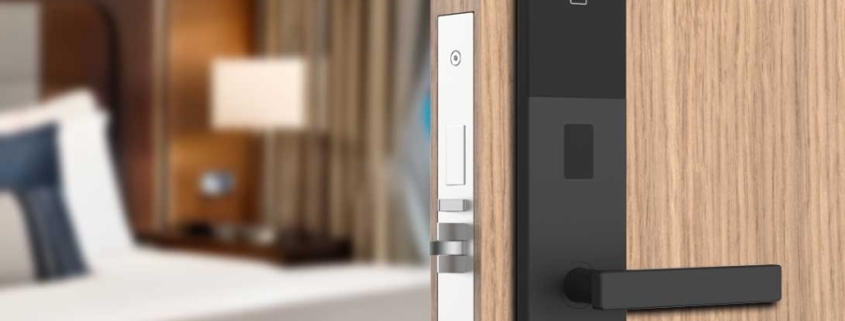6 Common Mistakes When Choosing Hotel Door Locks
When it comes to hotel security, the door lock is the first line of defense against unauthorized access. Yet, many hotel owners, managers, and even guests overlook critical factors when selecting or evaluating door locks. Whether you’re running a boutique hotel, a large resort, or simply concerned about safety during your travels, avoiding these six common mistakes can make a significant difference in security, convenience, and guest satisfaction.
Mistake #1: Prioritizing Cost Over Security
The Problem:
Many hotel operators choose the cheapest door locks available to cut costs, assuming all locks provide similar protection. However, low-cost locks often lack advanced security features, making them vulnerable to picking, bumping, or forced entry.
Why It Matters:
- Cheap locks may fail during emergencies, trapping guests inside.
- Weak security increases the risk of break-ins, leading to theft or worse.
- Insurance companies may deny claims if inadequate locks contributed to a security breach.
The Solution:
Invest in high-security locks with features like:
- Anti-pick and anti-bump technology (e.g., Medeco, Schlage Primus)
- Reinforced strike plates to resist forced entry
- Certifications from ANSI (Grade 1 or 2) or BHMA
Mistake #2: Ignoring Keyless Entry Options
The Problem:
Many hotels still rely solely on traditional key cards or metal keys, missing out on the convenience and security benefits of modern keyless entry systems.
Why It Matters:
- Lost or stolen keys require costly rekeying.
- Key cards can be easily duplicated or hacked with RFID skimmers.
- Guests expect tech-friendly solutions like mobile access (via Bluetooth or smartphone apps).
The Solution:
Upgrade to smart locks offering:
- Mobile key access (via apps like OpenKey or ASSA ABLOY’s Mobile Access)
- Temporary digital keys for staff and maintenance
- Audit trails to track who enters and exits

Mistake #3: Overlooking Durability and Weather Resistance
The Problem:
Hotels in high-traffic areas or extreme climates often install locks not designed for heavy use or weather exposure, leading to malfunctions.
Why It Matters:
- Corrosion from humidity or salt air (common in coastal hotels) can damage locks.
- Freezing temperatures may cause electronic locks to fail.
- Constant use wears out cheap mechanisms, increasing maintenance costs.
The Solution:
Choose locks with:
- Stainless steel or weather-resistant coatings
- IP ratings for dust/water resistance (e.g., IP65 for outdoor use)
- Heavy-duty construction (tested for 500,000+ cycles)
Mistake #4: Failing to Integrate with Hotel Management Systems
The Problem:
Some hotels buy standalone locks that don’t sync with their Property Management System (PMS), creating inefficiencies.
Why It Matters:
- Manual key management is time-consuming (e.g., reprogramming cards for each guest).
- No centralized control means security breaches go unnoticed.
- Guests face delays if front desk systems can’t instantly update access permissions.
The Solution:
Opt for PMS-compatible locks that:
- Automatically deactivate keys after checkout
- Sync with booking systems (e.g., Opera, Cloudbeds)
- Allow remote lock/unlock for staff
Mistake #5: Neglecting Guest Convenience
The Problem:
Hotels sometimes install overly complicated locks that frustrate guests, leading to negative reviews and complaints.
Why It Matters:
- Confusing keycard readers cause delays at entry.
- Battery-operated smart locks die unexpectedly, locking guests out.
- Loud or slow mechanisms annoy guests trying to enter quietly.
The Solution:
Select user-friendly locks with:
- Clear LED indicators (showing lock status)
- Backup power options (e.g., USB charging or mechanical override)
- Quiet motorized mechanisms
Mistake #6: Skipping Regular Maintenance and Updates
The Problem:
Even the best locks fail without proper upkeep. Many hotels ignore maintenance until a lock breaks.
Why It Matters:
- Worn-out locks are easier to pick or break.
- Outdated firmware in smart locks can be hacked.
- Ignoring minor issues leads to costly emergency repairs.
The Solution:
Implement a preventive maintenance plan:
- Inspect locks quarterly for wear and tear.
- Update firmware on electronic locks.
- Train staff to report malfunctions immediately.
Final Thoughts: Choosing the Right Lock for Your Hotel
Selecting the right hotel door lock involves balancing security, convenience, durability, and integration. Avoiding these six mistakes can save you from costly breaches, unhappy guests, and operational headaches.
Quick Checklist for Buyers:
Invest in high-security, pick-resistant locks (ANSI Grade 1 or 2).
Consider keyless/mobile entry for convenience and security.
Ensure weather resistance if located in harsh climates.
Choose PMS-compatible locks for seamless operations.
Prioritize user-friendly designs to enhance guest experience.
Schedule regular maintenance to prevent failures.
By making informed decisions, you can ensure your hotel remains safe, efficient, and welcoming for every guest.









